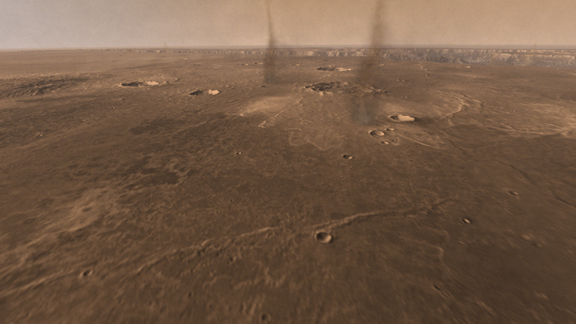
Stills from the flight through Valles Marineris
The Grandest Canyon of all isn't on Earth, it's on the planet Mars - Valles Marineris, or Mariner Valley.
This canyon is so long it could stretch 3,000 miles from New York City to Los Angeles, and it's nearly as deep as Mt. Everest is high.
Let's take an imaginary flight through this beautiful and spectacular valley.
Lifting off in a cloud of dust, our scout ship heads for Mariner Valley. A swarm of tornado-like dust devils whirls across the mesa, just as in the deserts on Earth.

Dodging them, we pass impact craters, where large meteorites violently struck
long ago.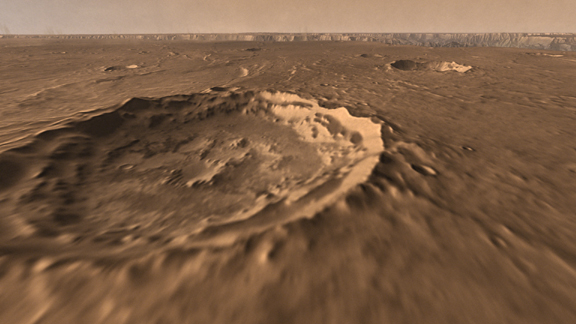
Dead ahead, in our race toward the rim, winds are blowing dust clouds up the
valley slopes.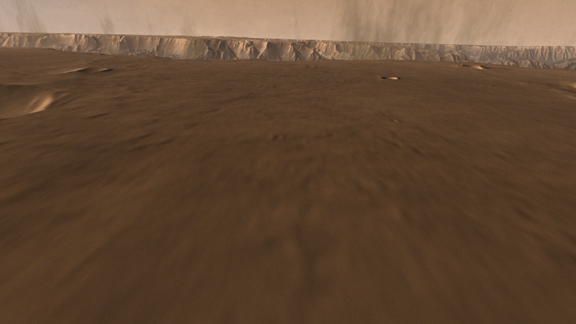
Mariner Valley is 10 times longer, 5 times deeper, and 20 times wider, than Earth's Grand Canyon. You could drop the entire Los Angeles basin inside with loads of room to spare.
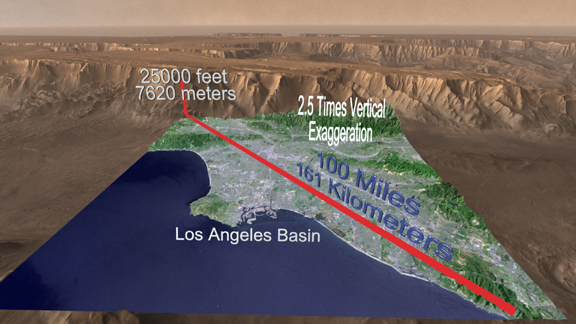
Looking westward, all along the valley's length we find giant landslides that tumbled off its steep, rugged walls, leaving numerous rocky spurs and narrow gullies.
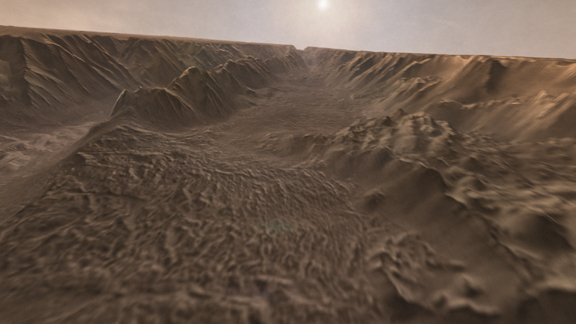
Flying up a tributary side canyon...
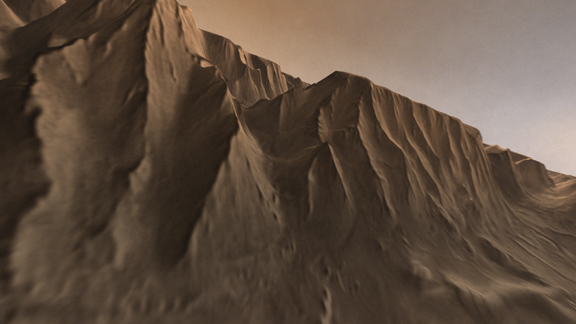
...we find it twists and turns in a stream-like way.
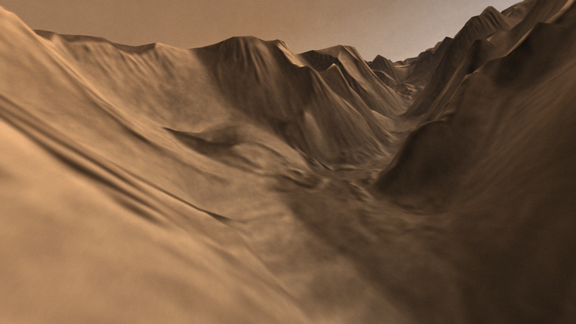
Geologists think this side canyon was born as groundwater escaped and the surface collapsed.
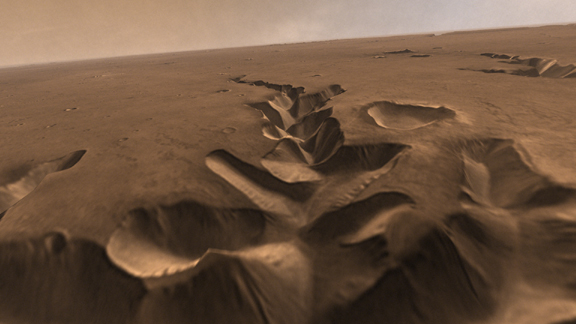
Several more tributary canyons cut into the valley's rim. These also grew where groundwater undermined the surface.
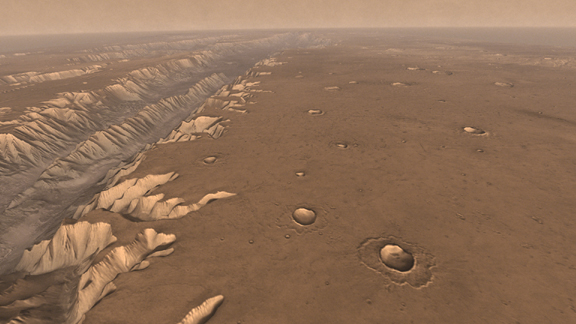
The valley walls run far into the distance. Its cliffs and ridges were born through earthquake faulting, the main geologic force that began to open the valley, billions of years ago.
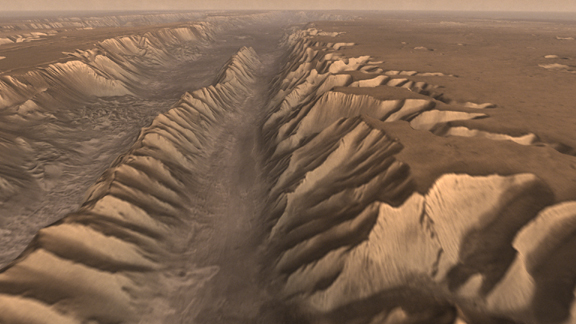
Tucked in the valley's widest part - Melas Chasma - are many layers of dust, sediments, and rock.
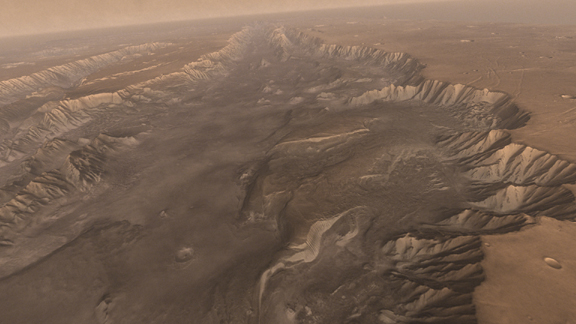
Each records a slice of time and fills a few pages in the geological record.
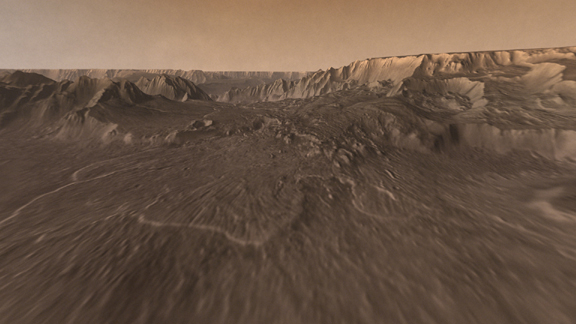
Ahead lies a catastrophic landslide that crashed down 15,000 feet, and shot debris nearly 100 miles across the valley floor.
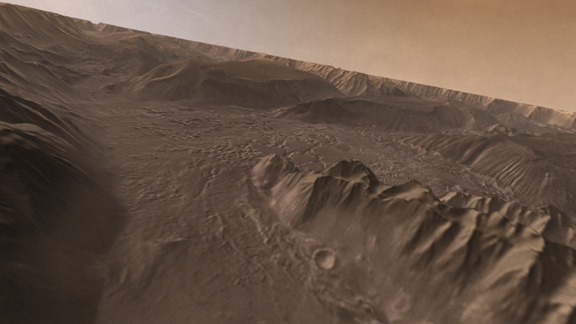
Beyond the landslide lies another basin containing more layered deposits.
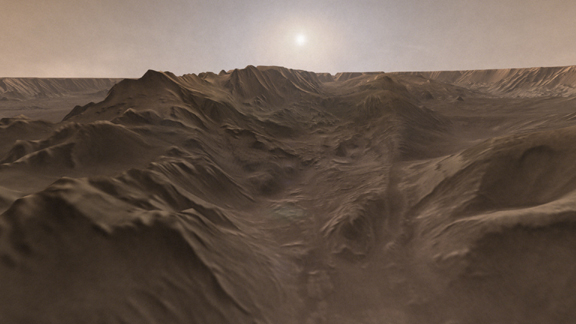
These offer glimpses of the past and record part of the valley's complex geological story.
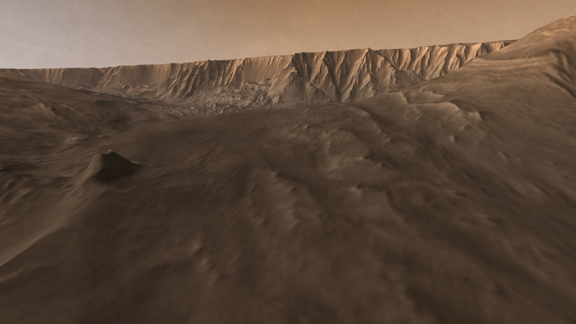
Farther into the basin, the floor is covered by hills made of layered sediments whose origin remains a puzzle.
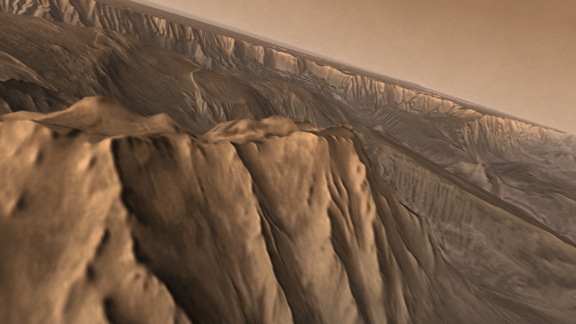
Winds blowing for millions of years sculpted the soft ground into long ridges.
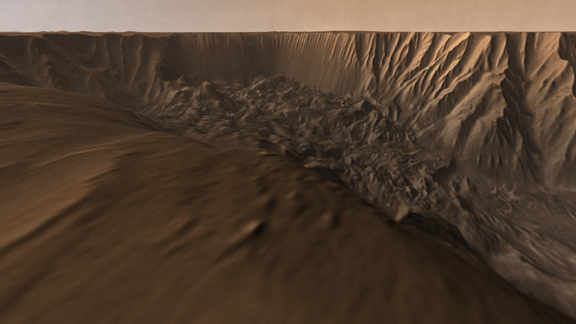
Turning up a narrow canyon .... and sailing over a gullied ridge, we fly into Ophir Chasma.
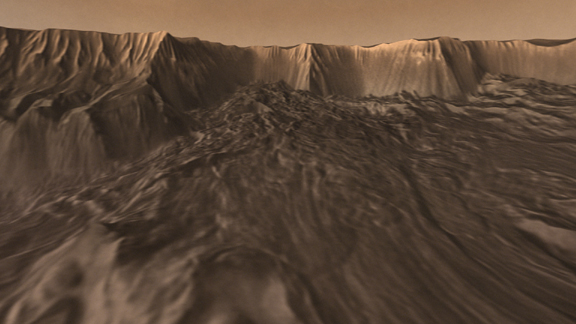
Here lie more sediments, wind-carved ridges, and a steep wall, with rock rubble heaped at its foot.
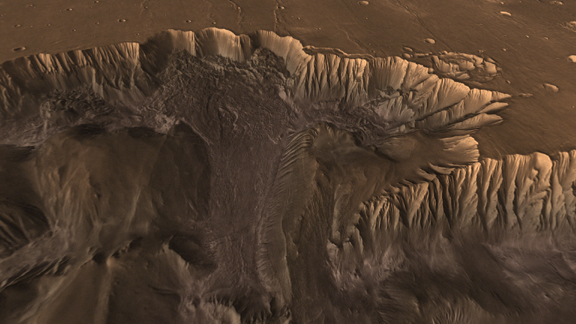
A long parade of landslides widened the valley, collapsing walls made of hard, volcanic rock.
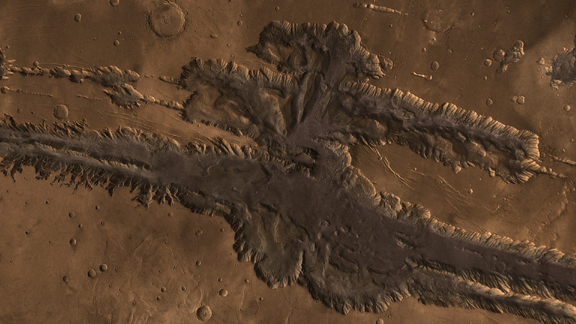
A flight through Mariner Valley gives us an exciting glimpse of its geological complexity.
Buried in the rocks of this Grand Canyon of All the Planets lies a history book of Mars that scientists have just begun to open. One day, perhaps soon, we'll read the full story of this awe-inspiring place.